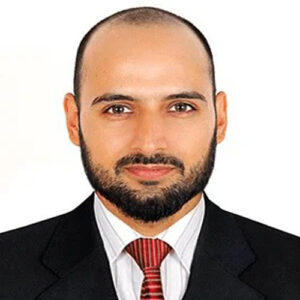Module Description
Grounded in an open and fruitful dialogue between academic and professional expertise, this transdisciplinary module, designed and delivered by Professor Maria Giuseppina Bruna (Dean for Research, Dissemination and Impact of the IPAG Business School, Director & Founder of the IPAG Chair “Towards an Inclusive Company”), promoted by the IPAG Chair “Towards an Inclusive Company”), aims at stimulating learners’ awareness as well as to enhance their knowledge, know-how and soft skills to identify, decrypt and address ethical, societal and socio-managerial promises, challenges and dilemmas punctuating business life in postmodern VUCA (or BANI) era.
This course invites students to a journey towards the company for tomorrow endorsing a paradigm rooted in holistic forecasting, ethics of regulation, green sustainability and social inclusion.
Focusing on the “challenges of the Corporate Social Responsibility”, this academic course endorses both a participative and dialogical approach to outline a forecasting of professions, organizations, and management (designing the company of tomorrow), under the light of ethics, responsibility, sustainability, and inclusion. Consequently, it exposes (or rather, co-constructs along with learners) a new leadership model as well as agile and inclusive, reflexive and learning-focused, reticular and resilient (Bruna & Bazin, 2018; Manita et al., 2018; Bruna & Nicolò, 2020; Bruna & Ben Lahouel, 2021; A. I. Hunjra & al., 2022, 2023; Bruna & Cappelletti, 2024). The 2024-2925 course is strongly embedded and enriched by the Institutional & Research Report, delivered by Prof. Maria Giuseppina Bruna and Prof. Laurent Cappelletti (CNAM), on the behalf of the French Foundation for Teaching and Research on Management and its Companies’ Club, on the key-topic of the renewal of management in times of transitions (Bruna & Capp
Methodologically, the course will adopt, pedagogically introduce, and operationally endorse an innovative research-grounded tool, designed, multi-tested and developed by Prof. Maria Giuseppina Bruna (The mapping of the key challenges of Business Ethics and Corporate Social Responsibility at work, within postmodern companies).
Accordingly, this course stimulates the students’ observational, analytical, and critical skills as well as their humanistic sensibility. Additionally, it aims at empowering their foresight capacities. The learners are addressed (considered) as in-progress agile and inclusive leaders, as leaders for tomorrow, being as well as enlightened, enlightening and pioneering, being able to combine observation ability, free-thinking, critical reasoning and ethical commitment.
Based on action-research findings, this participative course is founded on a back-and-forth path between theoretical contributions, empirical illustrations and insights derived from a grounded, reflexive, and critical investigation of the learners.
Learning Outcomes
LO1: Show proficiency in driving and managing contemporary socio-organizational issues related to Business Ethics, Corporate Social Responsibility, Sustainable Development, and Inclusiveness.
LO2: Understand why, when, and how companies are committed to maximizing partnership value (through a strategic and responsible stakeholders’ management) rather than shareholders’ value.
LO3: Identify the promises, challenges, ambiguities and dilemmas of ethics, sustainability and inclusiveness at work and investigate the impact of stakeholders’ strategic and responsible management and evaluate the outputs and outcomes and impacts of CSR strategies and activities.
LO4: Address, assess and enlighten how ethical commitment and CSR endorsement can influence the company’s system of interactions with stakeholders, contribute to organizational forecasting (the company for tomorrow) and enable renewing the managerial practices at work.











